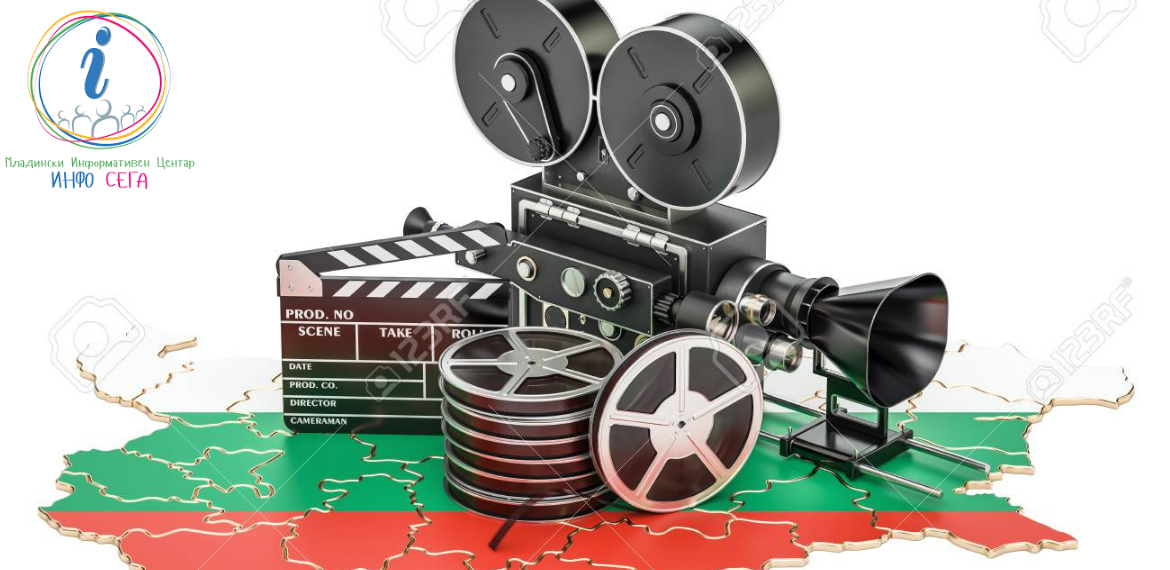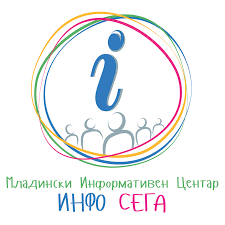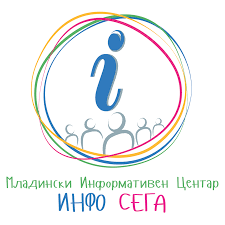
How the modern Bulgarian movie industry changed the lives of many young Bulgarians
In recent years in Bulgaria, there is a significant growth in the production of Bulgarian films and TV series.
With the modernization of technology, foundation of new studios, and the growing interest and investments from abroad, more and more young Bulgarians are drown towards the wide variety of professions, that are part of and/or applicable to the film industry.
From actors themselves, to producers, designers, editors, camera operators and special effect artists - to the not so committed supernumeraries and stagehands, the young people are showing increasing interest to this largely modernized and booming sphere of works, probably due to the relatively competitive pay rates, overall opportunities and good working environment. But before we talk a little more about that, let’s take a brief look in the history of the Bulgarian cinema, translated in English, to be able to understand better how this sector has developed over the years.
The concept of Bulgarian cinema depicts the whole set of films, film festivals, directors, screenwriters and artists in Bulgaria. The beginning of cinematography in Bulgaria is the recording and broadcasting of the film by Vasil Gendov "Bulgaran is gallant" (1915). From 1915 to 1948 (when cinema production was nationalized), 55 films were created. Under the Fatherland Front, films with a historical and ideological focus are preferred, with strict government control, and some films were stopped or were removed from the screens. The largest studio at that time was the “Boyana” cinema studio.
In 1997, the history of the International Sofia Film Fest, which was accredited by the International Federation of Film Producer Associations (IFFP) in 2010 as a festival for the first and second feature films, was awarded in 2010. The Sofia Film Fest is included in the Vrajity magazine's top 50 top festivals, which should not be missed.
The first screenings in Bulgaria took place in Sofia in the beginning of December 1896, by Professor Melindson in the "Macedonia" hotel lounge and the “Bulgaria” café. According to the MIR newspaper, "five good paintings in life, bestowed by the cinematographer" were projected.
Until recently, it was known that the first screening took place in 1897 at Marin Cholakov's restaurant in Rousse. The owner of the cinematographic machine and organizer of the event was Georgi Kuzmich. He screened a film showing the reception of King Nicolas in Paris, one of Paris's squares and a moving train. A month later, on 22nd March, another screening was organized in Sofia.
Until 1989, until the cinema was state-funded, the country had over 3000 cinemas. Socialist realism was the only permitted artistic method in the country. "Of all the arts today, the most important thing for us is cinema," said Lenin, the chief ideologist of Soviet communism. This idea was developed - even in every Bulgarian village there was a cinema.
Since 1972, the studio theaters in the capital ("Vitosha" and "Levski") were founded, where they have screened art films. Later, the small halls in the district towns also became studio cinemas.
Every year in Bulgaria around 25 films were produced.
Cinematographic production, then compared to today's criteria, was at a very low technical and technological level. The tape was a Soviet "Svema" or "Orvo" from the GDR - with very poor quality, could not compare to the Western “Kodak” in anything. The cinema projectors were imperfect, and in the villages, the projection of the films stopped, because they had one machine. Still, the films for many people were a window to the world, especially before the television. The most unpleasant thing, however, was the widespread ideological censorship put forth by the party organs of the BCP (Bulgarian Communist Party) - from the capital to the smallest villages. The censorship mainly examined whether the content of the films was against the government or not. This censorship may not allow some films to be cast by the audience (for example, the films Partisan and Binka Zhelyazkova's “Bonded Bond” or Irina Aktacheva and Hristo Piskov “Monday Morning”.
For 10 years, the series "The Village", 1980, directed by Ivan Terziev (Men Without Work, Strength Water), was frozen, although “Kinovariant” was invited in 1987 for the "Special Look" section in Cannes. "Death is gone" (1963, directed by Hristo Piskov and Irina Actasheva) was brought down 4 days after the premiere due to "pessimism and gloomy atmosphere".
Among the most watched and loved films during socialism are "The Goat Horn" by Methodi Andonov, "Everything Is Love", "Yesterday" (directed by Ivan Andonov, scenario Vlado Davev), "Dangerous Charm" and the comedies with the beloved Todor Kolev, which were in the heart of the audience, like: "Orchestra without name", "Samodivsko horo", "Ladies invite". Nikolay Volev's furious film "All for Love" stands out. The impressive and captivating black-white as vision of the cinematographer Dimo Kolarov of the film "The Goat Horn" with Katia Paskaleva and Anton Gorchev has been polled many times as the best Bulgarian film of all time.
Among the intelligentsia, the films of the undisputed masters Rangel Valchanov ("Love and Tenderness"), Georgi Dyulgerov ("Adventage"), Hristo Hristov ("Last Summer", One Woman at 33), Georgi Stoyanov ("Birds and Greyhounds") and many others. For example, “Hotel Central" (1983, directed by Veselin Branev) with an apparent retro-nostalgic aesthetics actually shows a normal Bulgaria from the 1930s with human dramas and political pluralism. Although Bulgarian cinema during the time of totalitarian rule (until 1989) was in the cries of censorship, it still managed to show its subversive power and to startle the Communist power. That's why there are so many forbidden, cropped and mutilated films. That's why the most praised films were not shown to the audience.
In the beginning of the 90’s, the state abruptly withdrew from film production. Hundreds of filmmakers from the Cinema Center were out of work. Many voluntarily left the job. The cinematographic distribution passes into private hands. A new profession is emerging - a movie maker. The state subsidy becomes a hard-to-reach mirage.
Due to a lack of finance, film production has declined. The financial subsidy is very small and it is enough to make 1 - 2 films a year. In the 1990s, there was not a single Bulgarian film. The movie center after a series of scandals was sold to an American company.
It is only in the last 3-4 years that 4 up to 5 films are made. The subsidy for 2009 was about BGN 16 million. Production is determined by the Film Industry Act. However, it does not apply effectively. Almost all governments since 1989 have misunderstood Bulgarian culture, which is the biggest sin of the nation.
Among our latest successes are Zornitza Sofia's "Milla from Mars", "Zift" by Yavor Gardev, Lyudmil Todorov's comedy "Shivachki", "Eastern plays" by Kamen Kalev. The latter film presents an undignified image of today's Sofia with problems such as drug addiction and racism.
After 2008, the process of change that is observed in Bulgarian cinema is related to its rapid recovery from its long lethargic state and its assumption on the path of revival. Contemporary TV series and feature films are being set up to participate in many international film festivals and receive audience approval. Suddenly the filming of Bulgarian series can be described as a reaction against the many Turkish TV series that have poured the nation’s airings and provoked the disapproval of a large number of Bulgarian viewers. Very high achievements are noted in the field of documentary cinema.
After this brief historical read into the past, let’s investigate what are some of the options for education for such professions in Bulgaria. Here is what we find out after a visit on the artcollege-bg.com webpage. (Unfortunately, we weren’t able to find an English version of the site.)
Art College is a relatively small, private institution, which was founded in 1998, and now is working in cooperation with the New Bulgarian University, which is also a private university. In the information section, it is stated that 90% of the students that graduated were able to realize in the professions that they studied. It is stated that Art College can teach all citizens from EU member states as long as they can handle the Bulgarian language, so we assume that the studies are not available in English, but still, we want to find out what exactly kind of studies are offered.
The disciplines are divided in three main specialties and they are as follows:
Specialty CINEMA and TV, with the following classes and exercises:
Production, TV Management and Screen Advertising, Film History and Theory, Art History, Film and TV Screenplay, Film and TV Director, Film and TV Editing, Computer Assembling, TV Equipment and Safety, Professional English, Film Operations , TV Operator, Creativity in the Profession - Exercise with Teacher, Audio Computing, Post-Production Toner, Musical Layout, On-Terrain Audio Editing, Director of a Console, Film Analysis, Production Work, Creation and Implementation of Creative Tasks chi, Creation and realization of a diploma project;
Specialty Photography, with the following classes and exercises:
Photo-reportage, Photography theory and history, Photographic technologies and apparatus, Studio photography, Photoshop, General photography - practice, Film direction, Film operator, TV technique and safe working conditions, Professional English, Creativity in the profession - and Film Theory, Film and TV Screenwriting, Productivity, TV Management and Screen Advertising, Film and Exhibition Analysis, Production Work, Creation and Implementation of Creative Tasks, Creation and Implementation of Diploma Project;
Specialty Animation, with the following classes and exercises:
Computer animation, Graphic design and 3D graphics, Photoshop, Introduction to animation, Drawing and animation, Film and animation directing, Animation film technology, Animation techniques, Computer editing, Film editing, Creativity in the profession - Teaching exercises, TV technique and safety Professional Language, Film History and Theory, Film and TV Screenwriting, Productivity, TV Management and Screen Advertising, Film Analysis, Production Work, Creation and Implementation of Creative Tasks, Creation realization of graduation project;
It has to be considered that with specialties like this, there is plentiful potential for realization on the free market for the so-called “occasional projects”, or eventually in the form of a full-time occupation. Let’s remember that basically any form of education could be a good basis for stability in the future, especially for the younger members of society – the high school graduates.
With all that has been said, finally for some motivation, let’s take a look into one more official site, that of the biggest Bulgarian Cinema studio and namely: Nu Boyana film studios, and just about what unimaginable success can be achieved with this kind of studies.
So, if you have flair for acting, high technologies or simply art, I suggest you may do a little bit of your own research, and find out what are the nearest or the best opportunities for your education or participation in the world’s seventh art. And remember – in an industry like this you can dream very – very big! So, dream big!
Written by: Velin Nedkov

